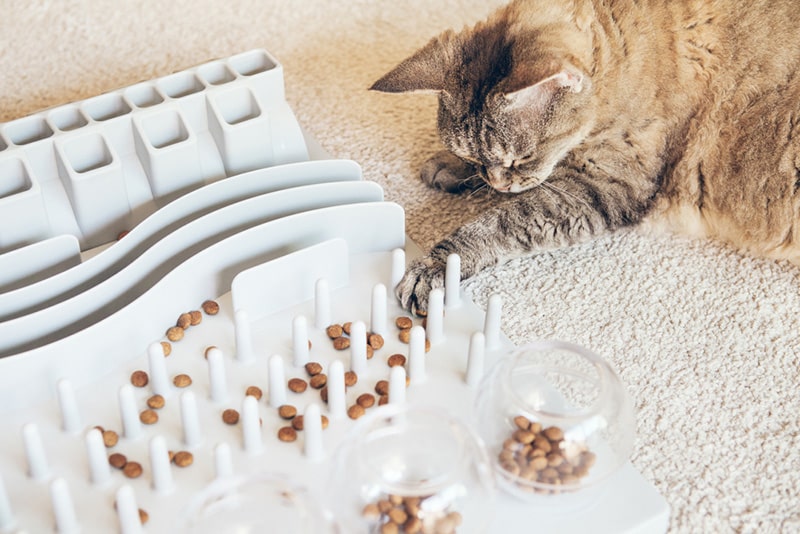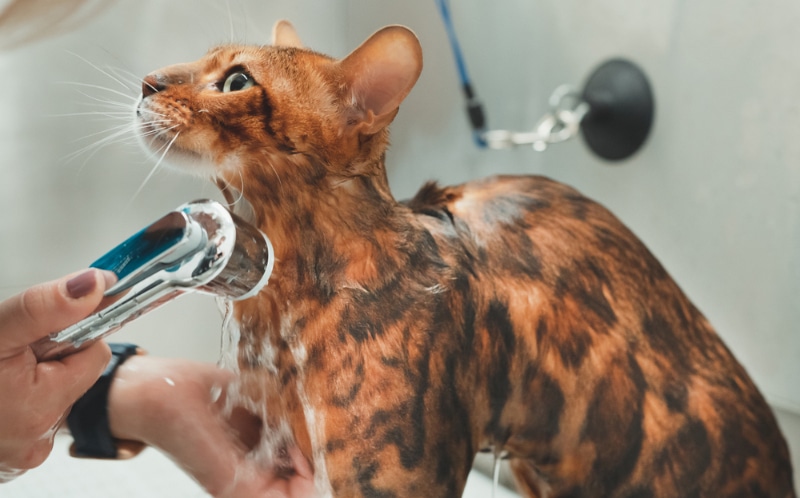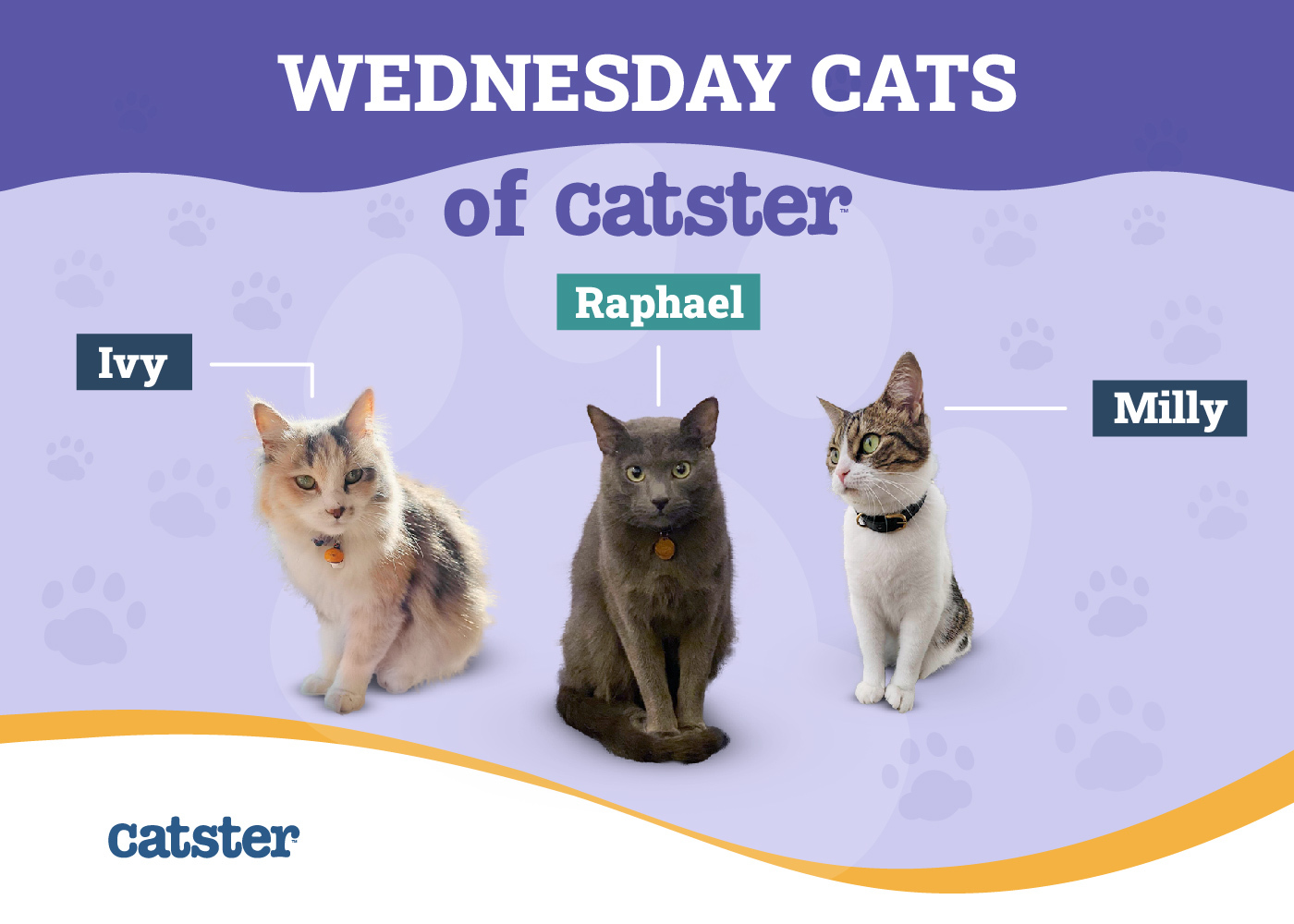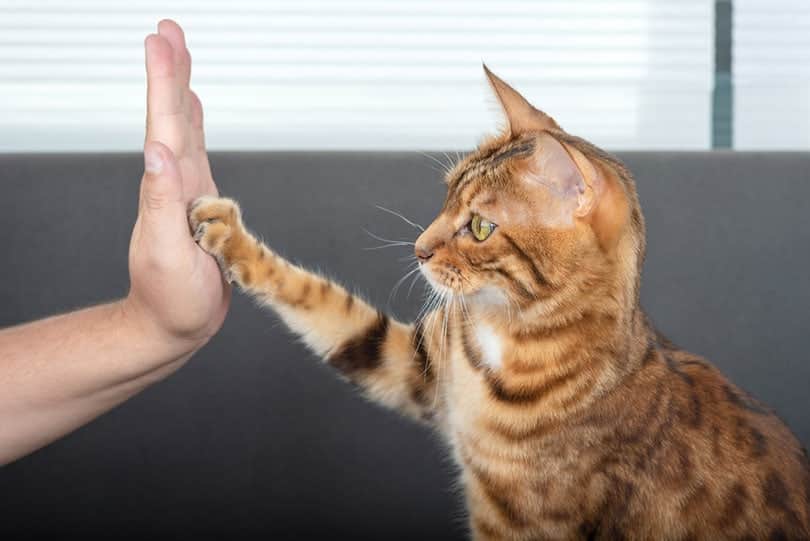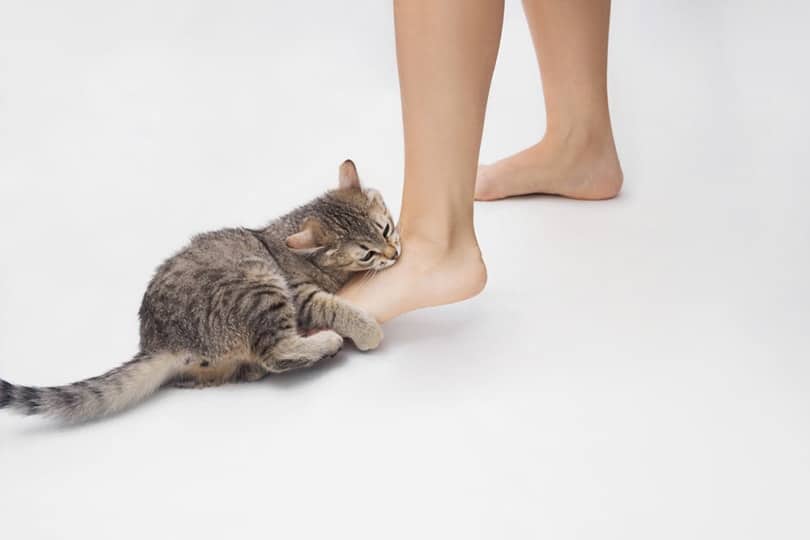Click to Skip Ahead
Veterinarians, vet technicians, practice managers, rescuers, behaviorists, nutritionists, trainers, volunteers, and other animal professionals are the backbone of pet ownership. Helping pets and their families live in harmony and health together.
Catster wants to highlight some of these underrated champions of the animal world. Who we like to refer to as Heroes of The Pet World.
We plan to interview some of the most inspiring vet clinics, animal hospitals, animal shelters, and rehabilitation organizations worldwide to share their wonderful and often harsh experiences while working to help, heal, guide, revitalize, and protect our furry family members.
These are the stories of unsung animal superheroes!

Let’s Get to Know Thrive Pet Healthcare!
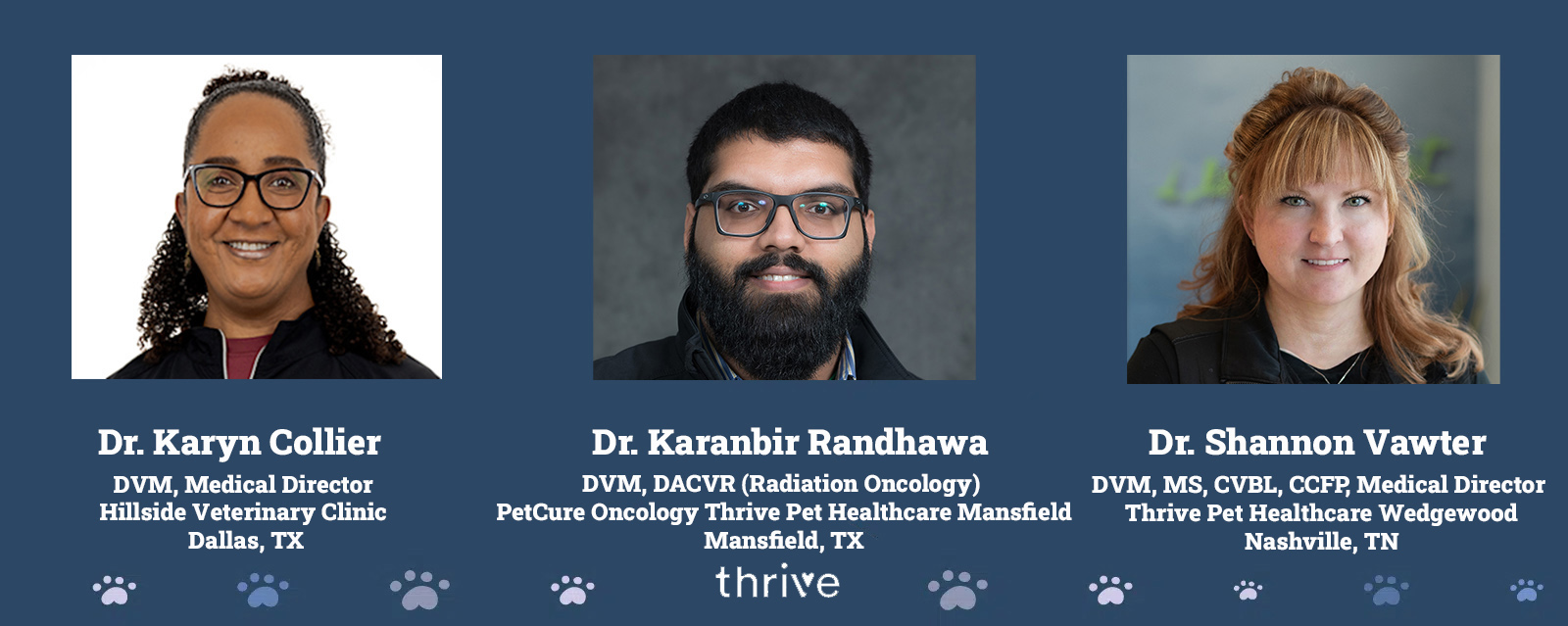
Mission
In your own words, what is Thrive Pet Healthcare’s mission and purpose?
Dr. Karyn Collier: Thrive’s mission is to provide the best possible patient care with empathy, compassion and respect for the bond between pet parents and their beloved pets.
Dr. Shannon Vawter: To provide compassionate, excellent veterinary care for pets. While promoting their health and well-being through innovative treatments and personalized services.
Dr. Karanbir Randhawa: To provide quality and compassionate pet health care for pet families from all walks of life.
What is your individual mission or goal, as a vet professional and as a person?
Dr. Karyn Collier: As part of our veterinary oath, we are committed to the principle of “first do no harm.” My goal is always to do my best and provide the highest quality care possible for my patients and their owners.
Dr. Shannon Vawter: My goal is to create an environment where my patients feel comfortable and my clients trust that I am providing exceptional care for their pets. I aim to personalize each experience, ensuring that every pet receives the attention and treatment it deserves.
Dr. Karanbir Randhawa: To help pet families navigate cancer care for their pets and provide them with an understanding of the chosen treatment so they and their pets can be as comfortable as possible. Additionally, my mission is to emphasize that the goals of cancer therapy in veterinary medicine differ to some extent from those in human medicine, with a primary focus on maintaining a normal quality of life for pets.
Thrive Pet Healthcare also just launched a brand-new app, available now for free download on the App Store and Google Play. From booking appointments to managing medications or finding emergency care, this app brings world-class veterinary care to you.

Day-to-Day Experience
What is it like being a vet professional in the United States?
Dr. Karyn Collier (Dallas): Dallas is a big city with a pretty diverse population. Many people are not natives of Dallas or Texas. I’m actually a transplant from New Jersey. Being part of Thrive enables me to connect with veterinary professionals nationwide. I interact with colleagues from Northern California to New York City.
Dr. Shannon Vawter (Nashville): The opportunities that I have being part of Thrive in Nashville are truly incredible. The city is home to a variety of community activities that not only need support but also allow us to make a tangible difference in the lives of pets. I enjoy being involved with Comfort Connections therapy dogs and the Nashville Sounds baseball team, among other organizations.
Dr. Karanbir Randhawa: At PetCure Oncology, I feel like I am a part of a team of radiation oncologists. Although I may be alone at my clinic, I have the support and knowledge of all the other radiation oncologists at PetCure Oncology, which allows me always to have the most options for owner’s pets and to get quick advice for tough cases. Being part of a Thrive Pet Healthcare hospital is like being part of a team with the same goal. We all work in different specialties, but we share the same goal of providing the best care possible to as many families as we can, regardless of their background or circumstances.
What does a regular day look like at Thrive?
Dr. Karyn Collier: We have a very busy hospital and a lot of things going on. We have general practice appointments starting at 7 a.m., and some days, they may not end until 10 p.m. We also have surgery every day, Monday through Friday. We are also open 24/7 for emergencies. There could be a cute puppy on their first visit, a patient having a dental procedure and a patient being seen for eating a bag of chocolate candy here at the same time. We are an exclusively small animal practice specializing in the care of dogs and cats.
Dr. Shannon Vawter: I start at the hospital at 7 a.m. Routine check-ups, vaccinations, and consultations with pet owners begin early. These may include wellness exams, workups for sick patients, parasite prevention, or follow-up visits. If there are scheduled surgeries, we prefer to do them in the morning as well. The afternoon then starts over with checkups and discharging patients.
Dr. Karanbir Randhawa: My day starts by taking patients for CT scans and treatments, ensuring they are doing well at home, and conducting a physical exam before administering anesthesia. Once our anesthetic patients are settled and ready with their anesthetic plans, we start to see rechecks and new appointments. Between these appointments, I will review CT scans and perform any necessary biopsies or fine-needle aspirations that may be required.
How big is your team?
Dr. Karyn Collier: We have 11 doctors and approximately 50 staff members, including technicians and customer service representatives.
Dr. Shannon Vawter: We have a small team of 10 people. We have three doctors, three receptionists, a groomer and three assistants.
Dr. Karanbir Randhawa: There are four of us: two licensed veterinary technicians, one radiation therapist (who is trained to operate our machine), and myself.
How many animals on average do you help on a weekly basis?
Dr. Karyn Collier: Of all of the services we offer, we can see 300 to 350 patients per week.
Dr. Shannon Vawter: We see roughly 50 patients per week.
Dr. Karanbir Randhawa: In our hospital, we see about 25 patients per week.

Challenges and Rewards
What is the hardest part of your job?
Dr. Karyn Collier: The hardest part of my job is navigating the financial aspect. Insurance is not as prevalent in veterinary medicine as it is in human medicine; therefore, clients must pay for services directly. People love their pets and want to do what’s best for them. We offer what is best and necessary, but it comes at a cost. Dealing with emotionally charged situations and adding financial discussions on top of it is difficult.
Dr. Shannon Vawter: What I find most difficult about my job is delivering tough news to my clients about their pets.
Dr. Karanbir Randhawa: The surprises unrelated to cancer are difficult. Cancer therapy itself is always hard once you get near the end for a patient, but most of the time, you are aware of when this end will come, and the patients have done very well prior to this time. The surprises unrelated to cancer (heart disease, chronic kidney disease, foreign bodies, accidents, etc.) are always the hardest because you do as much as you can to hold back cancer. Still, you never know when something unrelated can occur and make their time shorter, despite the cancer being under control.
What are some of the biggest challenges that your organization faces?
Dr. Karyn Collier: There is a challenge in creating a good work-life balance. We want to be present for our patients but need adequate time away. The age of social media, with its ability to attack and ruin a person’s reputation with a few keystrokes, makes it particularly challenging to work as a veterinarian. It is incredibly easy for miscommunication to end in a very negative way in a public forum.
Dr. Shannon Vawter: Handling disrespectful and difficult clients is one of the most challenging tasks for veterinary professionals. Many people underestimate the complexity and cost of veterinary care, leading to unrealistic expectations. Another challenge is the high workload, which can lead to burnout and long hours, high patient volumes, and staff shortages, contributing to fatigue and burnout.
Dr. Karanbir Randhawa: Dealing with the emotional weight from our patients and clients can be tough, even though it’s not on purpose. It’s just something veterinarians tend to take on because we all naturally have that sense of compassion and empathy. We really care, and sometimes it can feel like a lot to handle!
What is the most rewarding part of doing what you guys do?
Dr. Karyn Collier: The most rewarding part of our job is being able to keep patients healthy. In times when they are ill, it’s an amazing feeling to be able to make that pet feel better and return it to its family.
Dr. Shannon Vawter: The most rewarding part of my job is making a difference. Whether through preventive care, surgery, or education, I get to improve my patients’ lives. The second-best part of my job is mentoring and teaching future veterinary professionals.
Dr. Karanbir Randhawa: It’s rewarding to see a pet that’s not feeling well get treatment and, soon after treatment, hear stories about how that pet is back to their normal antics.
What are some of the accomplishments or specific animals that have made a big impact on you as a person or on your team?
Dr. Karyn Collier: I have been a veterinarian long enough to have had some “lifetime” patients. Meaning I saw them for their first visit and also was there for their last visit. It is an honor to have been trusted to care for a pet for 12 to 15 years.
Dr. Shannon Vawter: I’m not sure if there’s one specific animal or accomplishment that has made the biggest impact on me or the team. For me, it’s the everyday moments—the thank-yous, the hugs, and seeing our patients improve that truly make up our greatest accomplishments.
Dr. Karanbir Randhawa: Our specialty hospital is brand new. It’s wonderful to see all our departments get busier from all our hard work.
Future
What are Thrive Pet Care’s main goals for the future?
Dr. Karyn Collier: Continue creating the future of pet well-being through medical excellence, innovative technology, and a connected community of teams and partners.
How can the general public help make your lives easier?
Dr. Karyn Collier: Being a pet owner comes with a big responsibility. Research pet insurance when your pet is young and has no pre-existing conditions. This will help make the financial aspect of urgent and emergent situations much less stressful. Please ask questions. We want to be sure that pet owners understand, make informed decisions, and participate in the care of their pets.
Dr. Shannon Vawter: Veterinary professionals work hard and care deeply about animals, so treating them with patience, respect and appreciation goes a long way.
Dr. Karanbir Randhawa: Allow an oncologist the opportunity to give them information about cancer and the process of cancer therapy in veterinary medicine. You don’t need to pursue therapy to see an oncologist. We can help by providing an idea of what to watch for and help manage cases longer than you would think.
Stories
What are some of the funniest or most outrageous pet names you’ve encountered?
Dr. Karyn Collier: One of the coolest names was a Frenchie named Piggy Smalls. He was a chubby little Frenchie that snorted a lot and sounded like a pig. There was also a kitten named Krusty. He had a severe upper respiratory tract infection and was quite crusty!
Dr. Shannon Vawter: Harry Pawter, Purrlock Holmes, Clawdius

How to Help
If someone is interested in joining your team or applying for a position at Thrive Pet Healthcare, where can they find more information and get in touch?
Dr. Karyn Collier: If you’re interested in joining Thrive’s community of hospitals, please visit: https://careers.thrivepetcare.com
Anything else you’d like to tell the cat community?
Dr. Karyn Collier: Hillside is a practice that, although not certified as a Cat-Friendly Practice by the AAFP, strives to create a pleasant experience and a cat-friendly atmosphere. I am known as the “cat whisperer” because I love working with cats that are, shall we say, a bit spicy.
Dr. Shannon Vawter: Kindness and patience go a long way—everyone wants the best outcome for your pet.
Dr. Karanbir Randhawa: I love cats to death! If I could have a cat-only radiation therapy hospital, I would.


